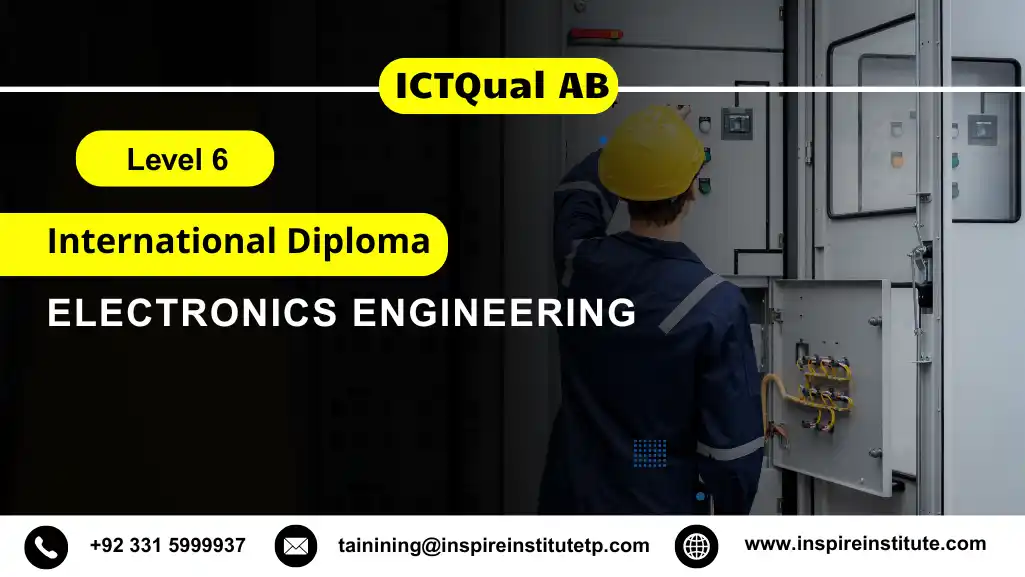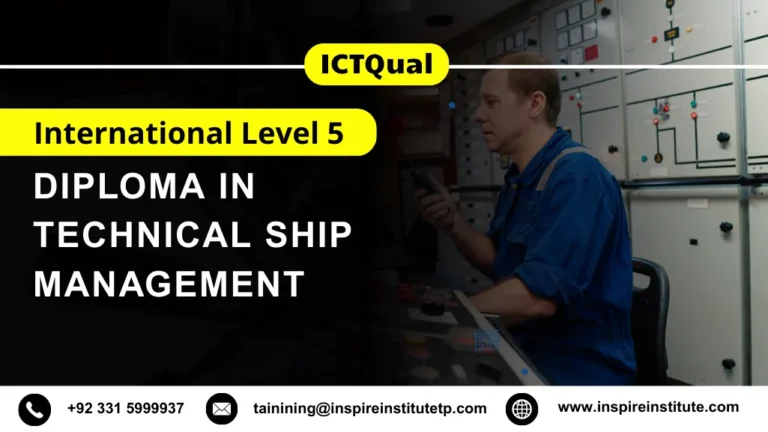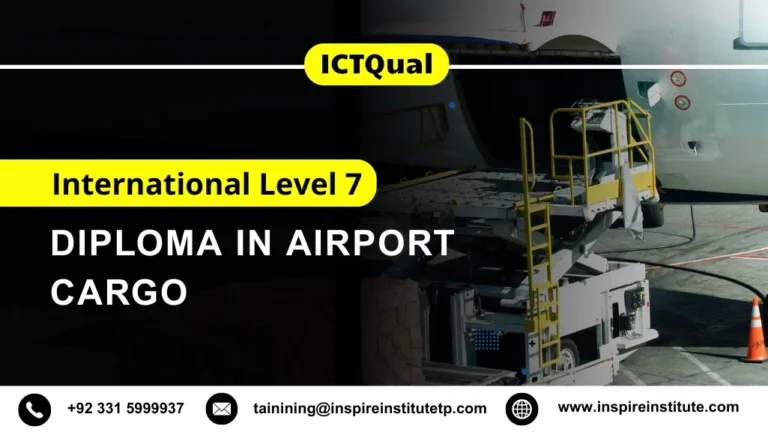ICTQual ABLevel 6 International Diploma in Electronics Engineering
The ICTQual AB Level 6 International Diploma in Electronics Engineering is a comprehensive, three-year advanced programme designed for both freshers and professionals seeking to establish or elevate their careers in the field of electronics engineering. With a total of 360 credits, this internationally recognised diploma provides an in-depth understanding of modern electronics principles, advanced engineering practices, and the practical skills required to thrive in an increasingly technology-driven world. The course is structured to ensure learners gain both theoretical knowledge and hands-on experience, making it suitable for those entering the industry as well as experienced engineers aiming to enhance their expertise.
Throughout the three-year programme, students explore a wide range of topics including circuit design, digital and analogue electronics, embedded systems, telecommunications, and microprocessor applications. The curriculum emphasises problem-solving, innovation, and critical thinking, allowing learners to develop the ability to design, implement, and troubleshoot complex electronic systems. Alongside technical knowledge, the diploma also focuses on professional skills such as project management, engineering ethics, and communication, preparing graduates to meet the high standards of the global engineering sector.
This course is highly flexible and learner-friendly, catering to diverse learning needs. Freshers benefit from a strong foundation in electronics, while professionals gain advanced insights that can be directly applied to real-world projects. The programme’s assessment is designed to encourage practical application and critical analysis, ensuring that students not only understand core concepts but can also implement them effectively in practical scenarios.
Upon successful completion of the ICTQual AB Level 6 International Diploma in Electronics Engineering, graduates are equipped with the qualifications and confidence to pursue careers in electronics design, telecommunications, automation, and other high-demand sectors. The diploma also serves as a strong stepping stone for further professional development or higher education, offering a globally recognised credential that reflects both academic achievement and practical competence in electronics engineering.
This programme combines rigorous academic standards with practical, career-oriented learning, making it a perfect choice for anyone aiming to succeed in the dynamic and rapidly evolving field of electronics engineering.
Why Choose this Qualification
The ICTQual AB Level 6 International Diploma in Electronics Engineering is a UK-recognised, three-year programme carrying 360 credits, tailored for both fresh learners and experienced professionals aiming to advance their careers in electronics engineering. This internationally recognised qualification blends technical expertise, practical experience, and global standards, making it an ideal choice for individuals seeking roles in electronics design, embedded systems, telecommunications, and industrial automation.
Key Reasons to Choose This Qualification:
Comprehensive Electronics Engineering Skills: Gain in-depth knowledge of analogue and digital electronics, circuit design, microprocessors, embedded systems, signal processing, telecommunications, and control systems. The curriculum integrates theoretical principles with real-world applications, ensuring learners develop both conceptual understanding and practical competence.
Practical, Assignment-Based Learning: Develop hands-on skills through projects, case studies, and assignments that simulate real-world engineering challenges. Learners are trained to design, implement, and troubleshoot complex electronic systems, fostering problem-solving and critical thinking essential for professional success.
Career Opportunities: Prepare for roles such as Electronics Design Engineer, Embedded Systems Specialist, Telecommunications Engineer, Control Systems Analyst, or Technical Consultant in electronics manufacturing, industrial automation, IT hardware, and communication sectors globally.
Pathway to Higher-Level Study: Establish a strong academic foundation for progression to postgraduate programmes, advanced diplomas, or professional certifications in electronics, electrical engineering, or technology management.
UK-Recognised Qualification: Earn a globally respected credential that enhances employability, credibility, and career prospects in electronics engineering, innovation-driven industries, and technology consultancy.
Flexible Learning Options: Benefit from a study structure designed to accommodate professional and personal commitments, allowing learners to balance work, education, and career growth effectively.
Future-Ready Knowledge: Stay updated with emerging technologies, IoT integration, automation systems, smart devices, digital electronics, and sustainable engineering practices to meet the evolving demands of the global electronics sector.
The ICTQual AB Level 6 International Diploma in Electronics Engineering equips learners with advanced technical, analytical, and managerial skills, empowering them for immediate professional impact, long-term career development, leadership roles, and further academic advancement in the international electronics and technology industries.
Course Overview
UK based Qualification
Study Units: 36 Units
Evidence & Assignment Based
Course Level: Level 6
Qualification Structure
This qualification, the ICTQual AB Level 6 International Diploma in Electronics Engineering, consists of 36 mandatory units.
Year 1 – Foundation in Electronics Engineering
- Principles of Electrical and Electronics Engineering
- Introduction to Circuit Theory
- Digital and Analogue Electronics Fundamentals
- Electronic Components and Devices
- Fundamentals of Signal Processing
- Introduction to Microcontrollers and Embedded Systems
- Health, Safety, and Environmental Awareness
- Electrical Measurement and Instrumentation
- Laboratory Techniques in Electronics
- Technical Report Writing
- Introduction to Simulation and Design Software
- Basics of Power Electronics
Year 2 – Intermediate Electronics Engineering
- Advanced Circuit Design and Analysis
- Embedded System Programming
- Communication Systems Fundamentals
- Sensors, Transducers, and Instrumentation
- Power Electronics and Motor Control
- Microprocessor Architecture and Applications
- Process Control and Automation in Electronics
- Data Acquisition and Signal Conditioning
- Project Planning and Technical Communication
- Quality Control and Assurance in Electronics Systems
- Advanced Laboratory Techniques
- Electronics Standards, Safety, and Compliance
Year 3 – Advanced Electronics Engineering
- Advanced Embedded Systems and IoT Applications
- Robotics and Automation Systems
- Advanced Signal Processing Techniques
- Wireless and Telecommunication Systems
- Electronic System Design and Optimisation
- Power Systems and Renewable Integration
- Risk Assessment and Safety in Electronics Projects
- Advanced Laboratory Experiments and Testing
- Supply Chain and Logistics in Electronics Industry
- Capstone Project in Electronics Engineering
- Professional Development and Leadership in Engineering
- Strategic Decision-Making in Electronics Projects
Who Should Take This Course
The ICTQual AB Level 6 International Diploma in Electronics Engineering is specifically designed for individuals seeking advanced expertise in electronics design, embedded systems, telecommunications, control systems, and industrial automation. This UK-recognised, three-year programme, carrying 360 credits, provides both fresh learners and experienced professionals with the technical, managerial, and strategic competencies required to excel in electronics engineering, system design, and technology-driven operations. It is an ideal qualification for learners aiming to enhance career prospects, progress into senior engineering roles, or pursue higher-level academic study in electronics, electrical engineering, or advanced technology systems.
Ideal Candidates for This Course:
University Graduates and Freshers: Individuals who have completed higher secondary or undergraduate studies and wish to build a solid foundation in electronics engineering principles, digital and analogue circuits, microprocessor applications, and embedded systems.
Aspiring Electronics and Technology Professionals: Those looking to gain advanced knowledge in circuit design, telecommunications, signal processing, automation systems, IoT integration, and control technologies aligned with international engineering standards.
Experienced Professionals: Electronics engineers, system designers, technical supervisors, or industrial automation specialists who want to upskill, update their knowledge, or gain formal recognition of their expertise through an internationally respected qualification.
Career Changers: Professionals from other industries aiming to transition into electronics engineering, telecommunications, or technology development roles by acquiring structured technical knowledge and applied competence.
Entrepreneurs and Business Owners: Individuals managing electronics manufacturing units, automation projects, or technology-based operations who want to strengthen technical strategies, operational efficiency, and system reliability to improve performance and innovation.
Learners Planning Further Study: Those aspiring to pursue advanced diplomas, postgraduate degrees, or internationally recognised certifications in electronics engineering, embedded systems, or technological innovation.
The ICTQual AB Level 6 International Diploma in Electronics Engineering offers a flexible and professional learning pathway for a diverse range of learners. It equips participants with advanced technical expertise, practical problem-solving skills, and global recognition, ensuring they are fully prepared for career progression, leadership roles, or further academic and professional advancement in the international electronics and technology sectors.
Certification Route
The ICTQual AB Level 6 International Diploma in Electronics Engineering is a UK-recognised three-year qualification with 360 credits, designed for both fresh learners and experienced professionals aiming to develop advanced expertise in electronics engineering, embedded systems, telecommunications, and industrial automation. This comprehensive programme combines theoretical knowledge, practical skills, and international recognition, making it an ideal choice for individuals pursuing careers in electronics design, system integration, digital and analogue circuit development, and technology management. The course equips learners with the technical, managerial, and strategic competencies required to excel in the electronics sector while providing pathways for career progression, professional recognition, and further academic advancement.
Route for Candidates with No Experience
This route is ideal for learners who are new to Electronics Engineering and do not have prior work experience. The process is as follows:
- Admission: Learners enrol in the programme at an ICTQual AB Approved Training Centre. Entry requirements, including minimum age, educational background, and language proficiency, must be met.
- Training: Learners complete structured training covering all core and specialised units. Training includes theoretical instruction, practical exercises, laboratory work, and project-based learning to ensure comprehensive understanding of electronics principles, embedded systems, and telecommunications technologies.
- Assessment: Learners complete assignments, practical tasks, and projects aligned with the programme’s learning outcomes. Assessments evaluate both technical knowledge and applied electronics engineering skills.
- Certification: Upon successful completion of all training and assessments, learners are awarded the ICTQual AB Level 6 International Diploma in Electronics Engineering.
Route for Experienced and Competent Candidates
For candidates who already have relevant work experience in Electronics Engineering, the following route is available:
- Eligibility: Learners must provide evidence of at least six years of verified work experience in electronics or related fields.
- Assessment of Competence: Experienced learners may bypass full training and undergo a competency assessment to verify existing knowledge and skills.
- Evidence Submission: Learners submit documentation demonstrating prior experience, including job roles, projects, responsibilities, and achievements aligned with course learning outcomes.
- Knowledge and Understanding: Centres ensure learners are familiar with all learning outcomes, and a skills gap assessment may identify any additional learning requirements.
- Certification: Upon verification of competence and experience, learners are awarded the ICTQual AB Level 6 International Diploma in Electronics Engineering without completing the full programme.
This dual-route approach ensures learners either gain comprehensive knowledge through structured training or validate their existing competency, providing flexibility while maintaining international standards for electronics engineering professionals.
Eligibility Criteria
The ICTQual AB Level 6 International Diploma in Electronics Engineering is a rigorous and internationally recognised programme designed to equip learners with advanced technical knowledge, practical skills, and professional competencies in electronics engineering, embedded systems, telecommunications, and industrial automation. To ensure candidates can fully benefit from this comprehensive programme, certain entry requirements and prerequisites are recommended. These criteria are designed to assess educational background, technical aptitude, practical experience, and language proficiency, providing a strong foundation for successful completion of the course and maximising career prospects in the electronics and technology sector. The programme caters to both freshers looking to establish a solid technical foundation and experienced professionals seeking formal recognition or advanced upskilling.
Maximum Age: There is no strict upper age limit for enrolment. The programme is open to motivated learners of all ages, provided they meet the educational, technical, and language requirements.
Educational Background
Fresh learners should have completed higher secondary education (A-levels or equivalent) with subjects in mathematics, physics, or electronics. Graduates in electronics, electrical engineering, or technology-related fields are highly encouraged to apply.
Professional Experience
Freshers can join the programme directly without prior work experience. Experienced candidates are expected to have at least 3–6 years of verified professional experience in electronics engineering, embedded systems, telecommunications, or related technical fields. Professional experience may allow for competency-based assessment and faster progression.
Language Proficiency
As the programme is delivered in English, learners must demonstrate proficiency in reading, writing, and verbal communication. Non-native English speakers may be required to provide evidence of language proficiency through recognised tests or prior English-medium academic qualifications.
Future Progression
The ICTQual AB Level 6 International Diploma in Electronics Engineering equips learners with advanced knowledge and practical expertise in electronics design, embedded systems, telecommunications, and industrial automation. By combining structured theoretical study with hands-on application, this UK-recognised three-year programme, carrying 360 credits, prepares participants to design, implement, and manage complex electronic systems, develop innovative technology solutions, and ensure operational efficiency across various engineering sectors. The course also provides pathways for career advancement, professional recognition, and further academic development in electronics engineering, embedded systems, and technology management.
Career Opportunities
Electronics Engineering Roles: Qualify for positions such as Electronics Design Engineer, Embedded Systems Specialist, Telecommunications Engineer, Control Systems Analyst, or Industrial Automation Consultant in electronics manufacturing, IT hardware, industrial automation, and telecommunications companies.
Immediate Workplace Application: Apply practical competence in areas such as circuit design, digital and analogue system development, embedded programming, IoT integration, and testing of electronic devices and control systems.
Enhanced Employability: Earn a UK-recognised qualification that strengthens professional credibility and opens opportunities across electronics design firms, industrial automation projects, technology development organisations, and telecom infrastructure companies.
Progression to Higher-Level Qualifications
Advanced Diplomas and Certifications: Progress towards specialised certifications in embedded systems, electronics design, telecommunications, or technology management programmes.
Specialisation Pathways: Focus on key areas such as circuit and system design, embedded systems, telecommunications networks, industrial automation, and smart device integration.
Academic Advancement: Build a pathway to postgraduate studies, including MSc or MA programmes in Electronics Engineering, Embedded Systems, Telecommunications, or Technology Management.
Long-Term Professional Development
Career Growth: Advance into senior-level roles such as Senior Electronics Engineer, Embedded Systems Lead, Telecommunications Project Manager, Control Systems Supervisor, or Technology Consultant.
Industry-Relevant Skills: Stay updated with innovations in electronics technologies, IoT integration, automation systems, digital monitoring, and sustainable electronic solutions.
Entrepreneurial Opportunities: Use technical and operational expertise to develop technology projects, provide consultancy services, or implement innovative solutions for electronics design and industrial automation.
The ICTQual AB Level 6 International Diploma in Electronics Engineering delivers immediate career benefits while providing a structured pathway for long-term professional growth, leadership roles, and further academic progression in the global electronics and technology sectors.







